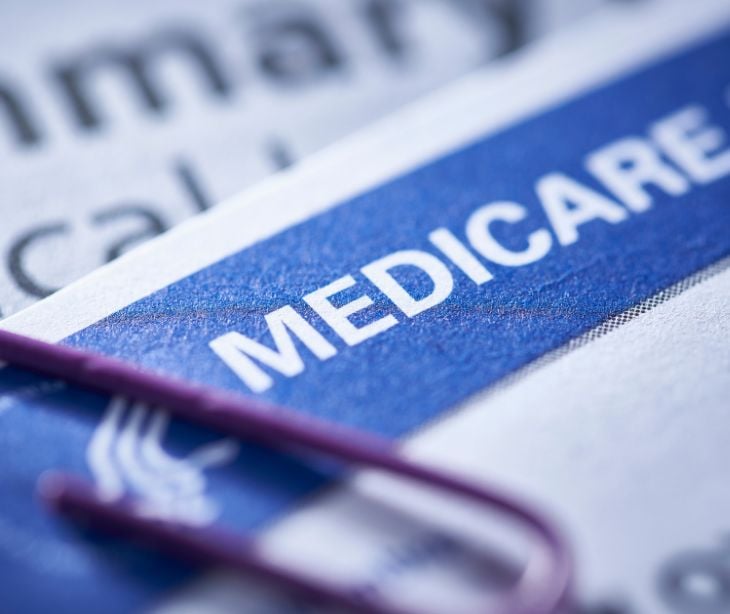
The National Money Laundering Risk Assessment (NMLRA) has identified healthcare fraud as the foremost contributor to illicit funds in the US, yielding a staggering $110 billion annually. This represents a major portion, constituting one-third of all illicit proceeds laundered within the nation. Annually, consumers invest billions of dollars in health products and treatments. Yet, regrettably, a substantial portion of these offerings are fraudulent schemes, devised to swindle individuals of their hard-earned money and, in some cases, jeopardize their well-being.
Learning to spot common health scams
Dishonest companies will go to great lengths to convince you to buy their products or services. They often make a wide range of fake health claims that follow certain patterns. By familiarizing yourself with these patterns, you can become better equipped to identify and avoid falling for these scams.
Claims of a special product
Some scammers will try to convince you that their product is unique and has special properties that make it more effective than others on the market. They may use phrases like "scientific breakthrough" or "ancient remedy" to create a false impression. Remember that these claims are often misleading or simply untrue.
Undocumented testimonials
Another red flag to watch out for is the use of undocumented testimonials from patients or doctors. Scammers often rely on these testimonials to create a false sense of credibility. However, these testimonials are often fabricated and should not be trusted.
False money-back guarantees
Scammers will often offer a money-back guarantee if their product fails to deliver results within a certain timeframe. They claim that if you don't see improvements within 30 days, they will refund your money. However, in reality, they rarely honor these guarantees and often make it difficult for customers to get their money back.
Urgency and pressure to buy
Scammers often create a sense of urgency in their marketing tactics to pressure you into making a quick decision. They may use phrases like "act now" or "this offer will not last" to make you feel like you need to buy their product immediately. Take your time, do your research, and make an informed decision.
Go deeper:
6 ways to avoid health scams
Now that you know how to spot common health scams, here are six steps you can take to protect yourself and your loved ones from falling for these fraudulent schemes.
Do research
Before purchasing any health product or service, research it thoroughly. Look for trusted sources of information and read reviews from other consumers who have tried the product or service.
Consult with your doctor
If you're considering a particular treatment, it's always a good idea to consult with your doctor or healthcare provider first. They can provide valuable insights and advice based on their medical expertise.
Beware of unproven products
Be cautious when considering unproven products or treatments. These products may also have harmful interactions with other medications or delay you from making necessary lifestyle changes to improve your condition.
Understand the law
Under federal law, sellers of health products and treatments are required to have scientific proof to back up their claims. Ads must be truthful and not misleading. However, remember that no government agency approves these ads before they are released to the public. So be skeptical of any product or treatment that makes grandiose claims without proper scientific evidence.
Report health scams
If you come across a health scam, report it to help protect others from falling victim to these fraudulent schemes. Inform your friends and family about the scam to raise awareness, and report it to the Federal Trade Commission (FTC). By reporting scams, you can assist the FTC and law enforcement agencies in building cases against scammers and shutting down their operations.
Reliable sources of information
To find reliable information about diseases and their treatments, consider visiting reputable sources such as MedlinePlus.gov, which is operated by the National Institutes of Health (NIH), and Healthfinder.gov. These websites provide detailed and evidence-based information on various health topics.
In the news
Malachi Mullings, a 31-year-old from Sandy Springs, Georgia, was sentenced to 10 years in prison for money laundering and conspiracy charges linked to a sophisticated digital fraud network. Operating under various schemes, including business email compromise (BEC) attacks, romance scams, and healthcare benefits frauds, Mullings managed to scam over $4.5 million from victims. He laundered the proceeds through 20 bank accounts registered under a shell company, The Mullings Group LLC.
His sentencing follows a guilty plea in January 2023 to one count of conspiracy to commit money laundering and seven counts of various money laundering offenses. Initially charged in February 2022 alongside nine others from multiple states, their collective schemes resulted in over $11.1 million in total losses. The fraud targeted Medicaid, Medicare, private health insurers, and numerous individuals and companies. The FBI, recognizing elder fraud as a major concern, reports a 14% increase in complaints among those over 60 in 2023, with associated losses reaching $3.4 billion. This rise proves the need for continued vigilance and collaborative efforts to combat such financial exploitation, as many cases likely go unreported.
FAQs
Does HIPAA apply to healthcare scams?
Yes, HIPAA (Health Insurance Portability and Accountability Act) applies to all healthcare-related activities, including the prevention and investigation of healthcare scams. Any unauthorized access, use, or disclosure of protected health information constitutes a violation of HIPAA.
Do I need consent to investigate healthcare scams?
Yes, in the context of healthcare scams, obtaining proper consent is needed when conducting investigations or collecting information from individuals. This ensures compliance with privacy laws and regulations and helps maintain the integrity of the investigation process.
What can I use to investigate healthcare scams?
Use appropriate resources such as forensic technology, data analysis tools, and legal expertise to effectively investigate healthcare scams. These tools can aid in identifying fraudulent activities, analyzing patterns, and gathering evidence to combat healthcare scams effectively.
Subscribe to Paubox Weekly
Every Friday we'll bring you the most important news from Paubox. Our aim is to make you smarter, faster.



